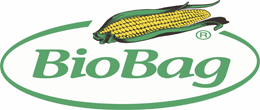With Australia imposing carbon tax on its citizens and more people getting aware of global warming, with heatwaves in China and natural disasters, saving the Earth has become a bigger priority among youth these days. And there is one word that floats around the market – biodegradable.
The term ‘biodegradable‘ means that products with this characteristic can be broken down into smaller compounds and returned to the Earth, without affecting the environment and causing clutter.
You may have heard of biodegradable spoons and utensils made of corn and potatoes sold on the market, but what about biodegradeble dog bags for pet lovers, which repel insects and keep unpleasant odours contained?
These dog bags are just one of the many products that eco-friendly product manufacturer BioBag Singapore peddles, alongside cleaning products, waste bags, produce bags and even towels.
BioBag’s Businesss Development Manager Kagen Tan said, “We need to use renewable resources so that we are not reliant on non-renewable ones.”
This is why BioBag prides itself in using GMO-free starch to manufacture its products. And the innovation doesn’t stop there. One interesting product to note is the MaxAir Ventilated Bin. When fitted with a BioBag waste bag, moisture evaporates from the waste, drying the contents of the bin out, preventing rot and odour from being emitted. After almost 2 to 3 months, the waste becomes useable compost, which can act as natural, organic garden fertiliser.

As for the BioBag waste bag which can be fitted in the Bin, this bag is no ordinary waste bag. In fact, it doubles up as a storage bag which protects goods against bacteria and spores, meaning that you can stow your shoes in without worry of seeing mould grow on them after some time in a humid cabinet.

BioBag also caters to bathroom products, with two types of towels sold – the bath towel and multi-purpose towels.
Multi-purpose towels can be reused after washing, for up to 20 times, if placed in a washing bag. They serve as handkerchiefs and cleaning cloths too, hence their name.
But these towels are not made from normal fabric, but paper pulp. Mr. Tan explains that the pulp is “a waste-product of the paper manufacturing process,” calling the use of this by-product a “nordic example of efficient use of resources”.

And at the end of the day, what are the perks of buying such products? Mr. Tan ended off by stating that saving the environment was “like good karma points, twice over.”

